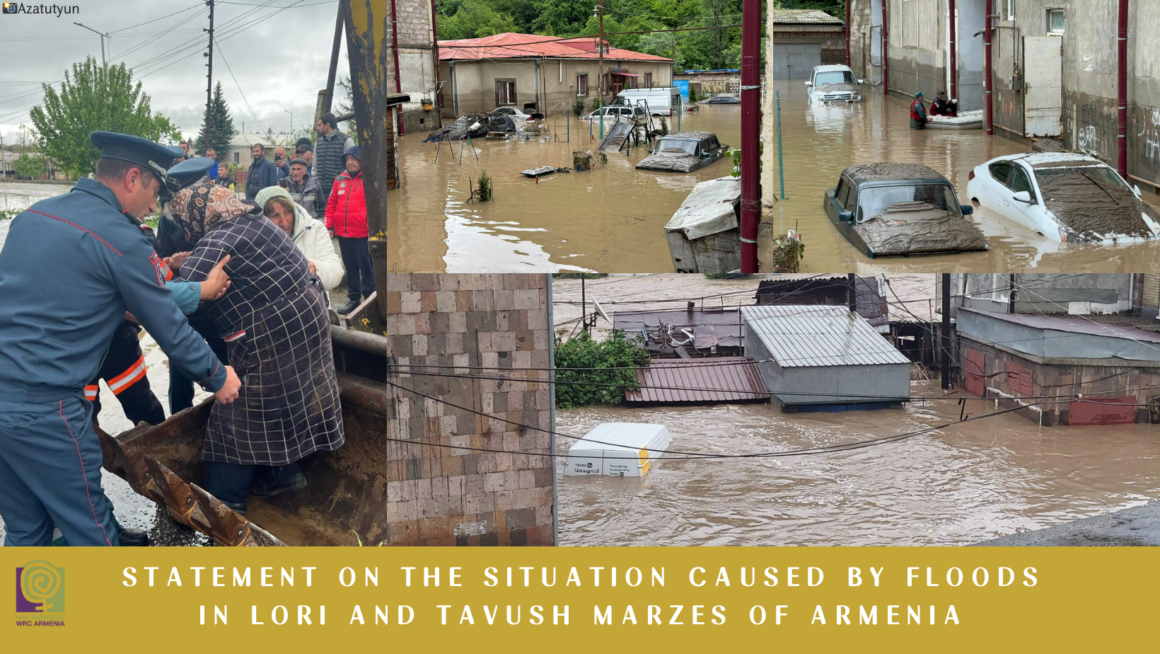The recent intense rains and storms in Lori and Tavush have resulted in severe flooding, causing widespread devastation across the region. Several bridges were destroyed, roads and streets in towns and villages surrounding the area are completely damaged. There were reports of four casualties and more than 440 people displaced due to the destruction of their homes.
As an organization dedicated to advocating for women’s rights and gender equality, we are deeply concerned about the multifaceted impact of this disaster, particularly on women and marginalized communities.
Climate change has significantly increased the frequency and intensity of extreme weather events, and the flooding in Lori and Tavush is a blatant reminder of its dire consequences. Entire villages and towns have been submerged, homes destroyed, and livelihoods shattered. The aftermath of such disasters often exacerbates existing vulnerabilities, with women bearing a disproportionate burden.
According to our partners and contacts in Alaverdi, Ijevan and Vanadzor many families are left without proper social support including food, bedding, electricity, and other important staff.
People, particularly those in rural areas, are among the most affected by the flooding.
Women often bear the primary responsibility for caring for children, the elderly, and the sick. In the wake of the flooding, these care duties become even more difficult as resources are depleted. Access to healthcare services is disrupted, and the risk of gender-based violence increases in the chaos following a disaster. Women and girls are particularly vulnerable in temporary accommodations or new settings.
Despite state efforts to provide social support to the disaster-affected population, mobilize volunteers for clean-up work, and rebuild roads and bridges to restore normalcy in isolated communities, we are receiving alerts from women and our partners that the support is slow.
To address the immediate and long-term impacts of the flooding, and to ensure that the response is timely, gender-sensitive, and inclusive of the most vulnerable, we urge the Government to:
- Provide Immediate Relief and Support, including hygiene kits, or other products with specific attention to the needs of women, children, elderly and those with disabilities.
- Establish safe and secure shelters for displaced families, with separate and protected spaces for women and girls as well as adapted to the needs of the elderly and those with disabilities.
- Strengthen Disaster Preparedness and Resilience that include gender-specific strategies and involve women in decision-making processes in the regions and communities more prone to such disasters.
- Support women’s economic recovery by providing financial assistance, rebuilding family farms affected by the flood, or local-led businesses.
- Ensure the continuous provision of reproductive health services and mental health support for the affected population and the availability of violence prevention hotlines.
- Address Climate Change. Engage with different communities and stakeholders for the implementation of climate adaptation and mitigation projects.
The flooding in Lori and Tavush underscores the urgent need to address the intertwined issues of climate change and gender inequality.
 Legal advice
Legal advice

Leave a Reply